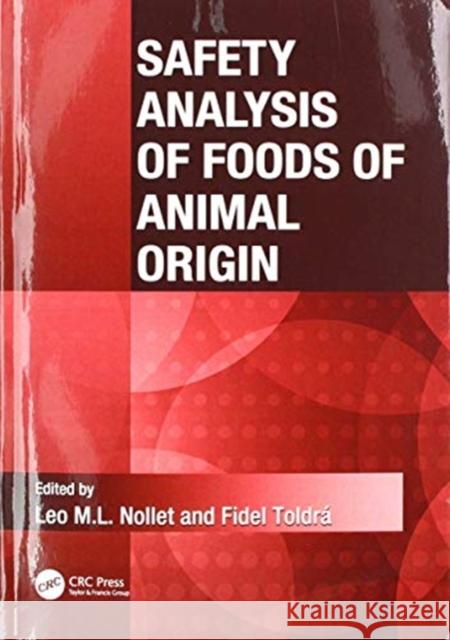Safety Analysis of Foods of Animal Origin » książka
Safety Analysis of Foods of Animal Origin
ISBN-13: 9781138112216 / Angielski / Miękka / 2017 / 1002 str.
Safety Analysis of Foods of Animal Origin
ISBN-13: 9781138112216 / Angielski / Miękka / 2017 / 1002 str.
(netto: 349,79 VAT: 5%)
Najniższa cena z 30 dni: 352,57
ok. 22 dni roboczych.
Darmowa dostawa!
We cannot control how every chef, packer, and food handler might safeguard or compromise the purity of our food, but thanks to the tools developed through physics and nanotech and the scientific rigor of modern chemistry, food industry and government safety regulators should never need to plead ignorance when it comes to safety assurance. Compiled by two of the most esteemed researchers in the food science industry, Leo M.L. Nollet and Fidel Toldra (most recently 2010 American Meat Science Association Distinguished Research Award recipient), Safety Analysis of Foods of Animal Origin sets such a new and complete standard for testing quality, that to use another resource could be considered irresponsible. Bringing together more than 70 of the most respected investigators from across the world, this invaluable resource - Covers all relevant biological and environmental contaminants Details methods to protect foods from bacteria, viruses, or parasites Considers all sources of contamination along the supply chain including veterinary drugs, irradiation, and genetic modification Looks at ways to detect especially pernicious threats, including metals, dioxins, allergens, and foreign proteins Organized for quick reference, the book is divided into three parts: meat, processed meats, and poultry; fish and seafood products; milk and dairy products. Each of the chapters is dedicated to a specific spoilage, foodborne pathogen, parasite, virus, adulteration, residue, or toxin. Each starts with a discussion of the parameter in question. Sample preparation and cleanup methods are then reviewed in depth, followed by a detailed evaluation of various separation and detection methods. Special attention is given to explain current limits of detection and reliability. Finally, a brief summary covers the presence of these parameters in different end products, regions, and countries. To keep food safe requires vigilance, not just in the rigor of methods, but also vigilance in terms of keeping informed about current methods. Only the most recent techniques and related literature are included in this text.











